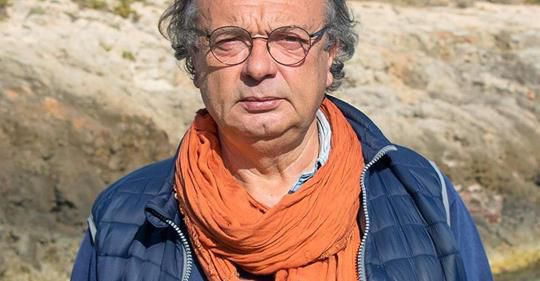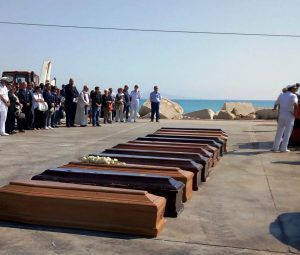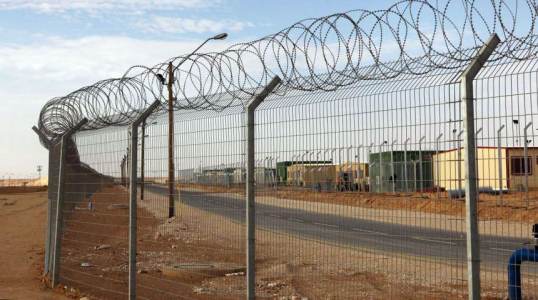Agrigento: Hundreds of refugees, among them people from Somalia and unaccompanied minors, rejected and left out on the street
“Seven Days,” that is how refugees call the order for “delayed deportation”
according to section 10 paragraph 2 of the unified text about migration which
asks them to leave Italian territory from the airport Fiumicino in Rome in the
course of seven days. During the last months, this happened to hundreds of
people and, how the last days showed, the numbers are increasing. The province
Agrigento is home to the most severe situation, which is not a coincidence.
From all the designated hotspots in Sicily of the Italian road map, the
ex-CPSA* is the only officially active one on Lampedusa. After the temporary
exception due to Mare Nostrum, the island is again the main point of arrival,
an important crossroad for the fate of those refugees saved on sea. Although it
is everything but easy to check the administrative modalities of the center, we
are able to reproduce from the many witness reports that were backed up from
several trustworthy sources the following report:
After mooring, the refugees undergo a health inspection in Lampedusa’s
harbor. Afterwards, they are brought to the hotspot. There, a special police
force proceeds with the photographic identification and hands out registration
documents. The priority set by Brussels is to immediately execute the
subdivision of the refugees in two categories: asylum seekers and so-called
economic refugees. The goal to accept the former and reject the latter is
obvious. The physical separation takes place on board of the ferry that
connects Lampedusa with Porto Empedocle. The asylum seekers are brought to the
center in Villa Sikania (Siculiana) while the “economic refugees” are informed
about the deportation order issued by the police of Agrigento. Subsequently,
they are brought to Agrigento and left out on the street without any further
instruction.
Innumerable aspects of this procedure are subject to critique. Deportation
orders solely issued on nationality seem unlawful as the way in which the
nationality is verified seems doubtful. Not taking into account the existence
of bi- or multilateral agreements with third countries about the re-admission
of refugees, it is important to take the individual situation of the case into
consideration. Yet, there have still been accounts of collective deportations,
a practice that undermines the existing right of asylum. Furthermore, these
kinds of procedures often turn out to be discriminating. Banning the
application process for asylum based on citizenship means to deny personal
rights that are defined by international and national standards. Along those
lines the refusal of the Agrigento police to accept applications for
international protection by already rejected migrants is illegitimate.
The severe violations described so far provoke an emergency situation in
Agrigento that also spreads to other principal cities in Sicily. The rejected
refugees are literally out on the street. Volunteering organizations try to
contain the situation yet are unable to provide the necessary support. The
dorms are crowded and today a lot of refugees are forced to sleep on the street
in Agrigento. Moreover, the numbers grow rapidly and alarmingly. Around forty
rejected refugees arrived on Tuesday, December, 8, and in addition around fifty
more arrived between today and yesterday. It is important to remind ourselves
that the ferry between Lampedusa and Porto Empedocle leaves in the morning and
arrives in the evening, except for not scheduled trips. This means that the
refugees arrive around ten p.m. at the Agrigento train station, a time when no
train is running. A lot of them managed to reach Palermo and Catania in the
last couple of days, but in both cities they have found similar difficulties to
find a place to sleep.
Furthermore, we want to point out the several notifications of pending
deportation which asylum seekers received from the prefecture of Agrigento that
were simultaneously given out with a rejection of their appeal for
international protection. Concerning these cases of “delayed deportation” and
the deportation of asylum seekers, Borderline
Sicilia, the Caritas, and Sezione siciliana Asgi demanded a
meeting in the prefecture, which was accepted so that a meeting took place on
December, 3rd. This grave situation of deportation, however, was not
sufficiently discussed, because of the refusal of the police. The meeting was
attended by the head of the section IV civil law, citizenship, the legal status
of foreigners, immigration, and asylum law, Mrs. Passalacqua and two officers
of the prefecture. An aspect that came up repeatedly in the meeting was the new
direction the Ministry of the interior has decided on and which Mrs.
Passalacqua continually remarked on when speaking about various newsletters
(especially one sent out mid-September by the Ministry of the interior). This
new direction does not allow for any room to negotiate when it comes to the
destiny of those refugees that hail from countries with which Italy has a
repatriation agreement. As no newsletter or a road map can make applicable law
void, it is important to point out that there are many registered cases of
Somali citizens who were deported because of their refusal to undergo the
identification processes. Finally, we received several notes on unaccompanied
minors who randomly were identified as being of age and consequently were
deported.
In light of the circumstances we illustrated, we declare our deep-felt
concern over the present situation and urgently request a new meeting with the
prefecture and the police of Agrigento to discuss these practices that violate
human rights and risk to create a new social emergency for the umpteenth time.
We hope that these practices can immediately be stopped as was the case in Catania after a
meeting with local authorities and representatives of the civil population.
Redazione Borderline
Sicilia Onlus
*CSPA – Centro di Soccorso e prima Accoglienza: Primary care and initial reception center.
Translation: Annika Schadewaldt



